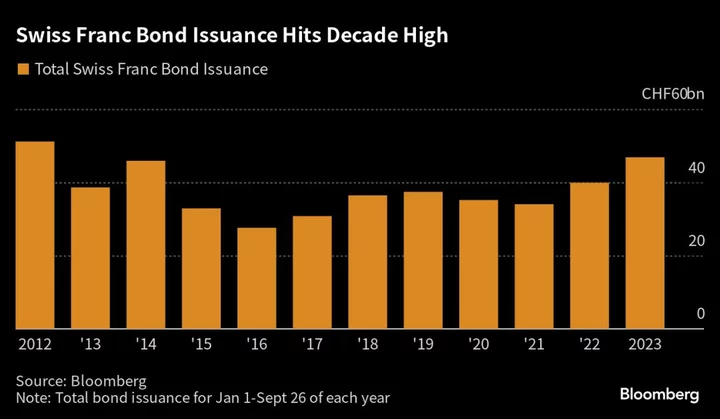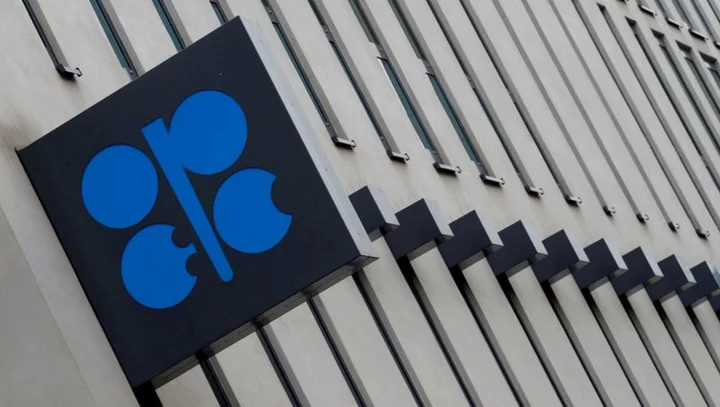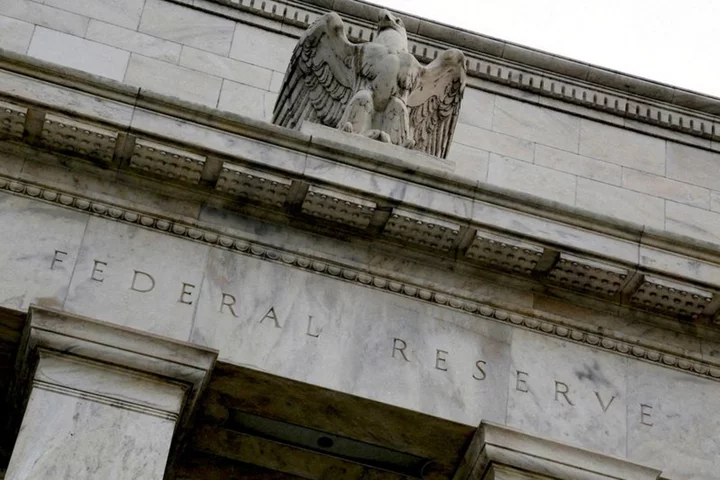Rival banks are flooding into a Credit Suisse-shaped hole in a resurgent market for arranging Swiss franc bond sales.
The biggest winner in this market from the March demise of Credit Suisse — the leading arranger of Swiss franc bonds for most of the last 20 years — is its acquirer UBS Group AG, though others such as Deutsche Bank AG and BNP Paribas SA have also boosted their share of the niche debt.
And this has been a particularly good year to gain business in the space, with Swiss borrowing costs significantly lower than in the euro area and the franc the top performer among Group-of-10 currencies. There have been 46.5 billion Swiss francs ($50.9 billion) of debt sales so far, the most in more than a decade.
“We have indeed seen a lot of new issuance year-on-year and in that sense the collapse of Credit Suisse has not had any impact on the primary market so far,” said Markus Thoeny, a fixed-income portfolio manager at Lombard Odier Asset Management. The competition for market share might mean some banks try to win business in the short term by promising more issuer-friendly terms, he added.
Swiss franc bonds, known as ‘Swissies’ among market participants, offer a diversification option for borrowers, particularly when currency fluctuations are favorable. The franc has slumped this month, though it remains more than 2% up against the euro in 2023.
Rising yields in the Swiss markets have opened up arbitrage opportunities for international issuers who can raise funding at cheaper levels than they would in the euro or US dollar markets. Investors who had previously skewed their portfolios toward equities or cash have also returned and poured money into fixed income.
“The Swiss franc bond has been coming out of 10 years of deeply negative rates,” said Damien Aellen, head of Swiss syndicate for BNP Paribas. “Issuers have always been looking for diversification there but now there’s also competitive funding on offer.”
Read: Franc’s Fading Rally Fuels Carry Trade Talk With Rates on Pause
The latest deal saw German healthcare firm Fresenius SE sell a 275 million Swiss franc bond this week, arranged by BNP Paribas and Deutsche Bank. Those lenders have both increased their share of the Swiss franc bond market to 7.3% this year so far, compared to 3.4% and 5.6% respectively over the same period in 2022, data compiled by Bloomberg shows.
“We are one of the larger of the non-Swiss banks operating in Switzerland and we see a need for competition in that market, given the consolidation of the two largest players. We hear this from clients as well,” said Mark Lewellen, co-head of capital markets at German lender Deutsche Bank. “There is an opportunity in the market for Swiss franc bonds and we’ve recently made a number of hires to help bolster our team in Zurich, both on syndicate and the origination desks.”
UBS has grown its share the most, accounting for 41% of the market this year. UBS declined to comment.
Regional lenders Zuercher Kantonalbank and Raiffeisen Switzerland have kept their slice of the pie more or less steady at about 11% and 8.7%, the data showed.









